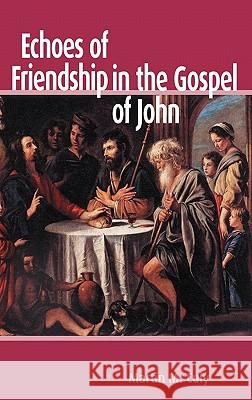Echoes of Friendship in the Gospel of John » książka
Echoes of Friendship in the Gospel of John
ISBN-13: 9781907534102 / Angielski / Twarda / 2010 / 240 str.
Friendship in the Graeco-Roman world took a wide variety of forms, with some 'friendships' involving nothing more than a political alliance or patron-client relationship and others involving deep personal intimacy. When Jesus says his disciples are to be called 'friends', what type of friendship does he have in mind? Friendship may seem a relatively insignificant motif in the Gospel of John, since the author does not explicitly set out to provide a philosophical discourse on the nature of friendship, nor does he explicitly state that the narrative is about friendship. In this study, however, Culy, having carefully examined Graeco-Roman literature on friendship, demonstrates that the language of what he calls 'ideal friendship' actually pervades the Fourth Gospel from beginning to end and serves as a primary vehicle for characterizing the relationships that are introduced in the Prologue and fleshed out throughout the course of the narrative. Taking up the friendship motif as a tool of characterization, the Gospel of John points to a striking implication of the life, death, and resurrection of Jesus: that followers of Jesus are invited to enjoy a level of intimacy with him that can actually, and perhaps only, be compared to the level of intimacy that he enjoys with the Father. The Johannine Jesus, then, came not just to save the world but also to offer those who would follow him a relationship that Graeco-Roman philosophers only dreamed of, a relationship where all the ingredients of ideal friendship were present.











